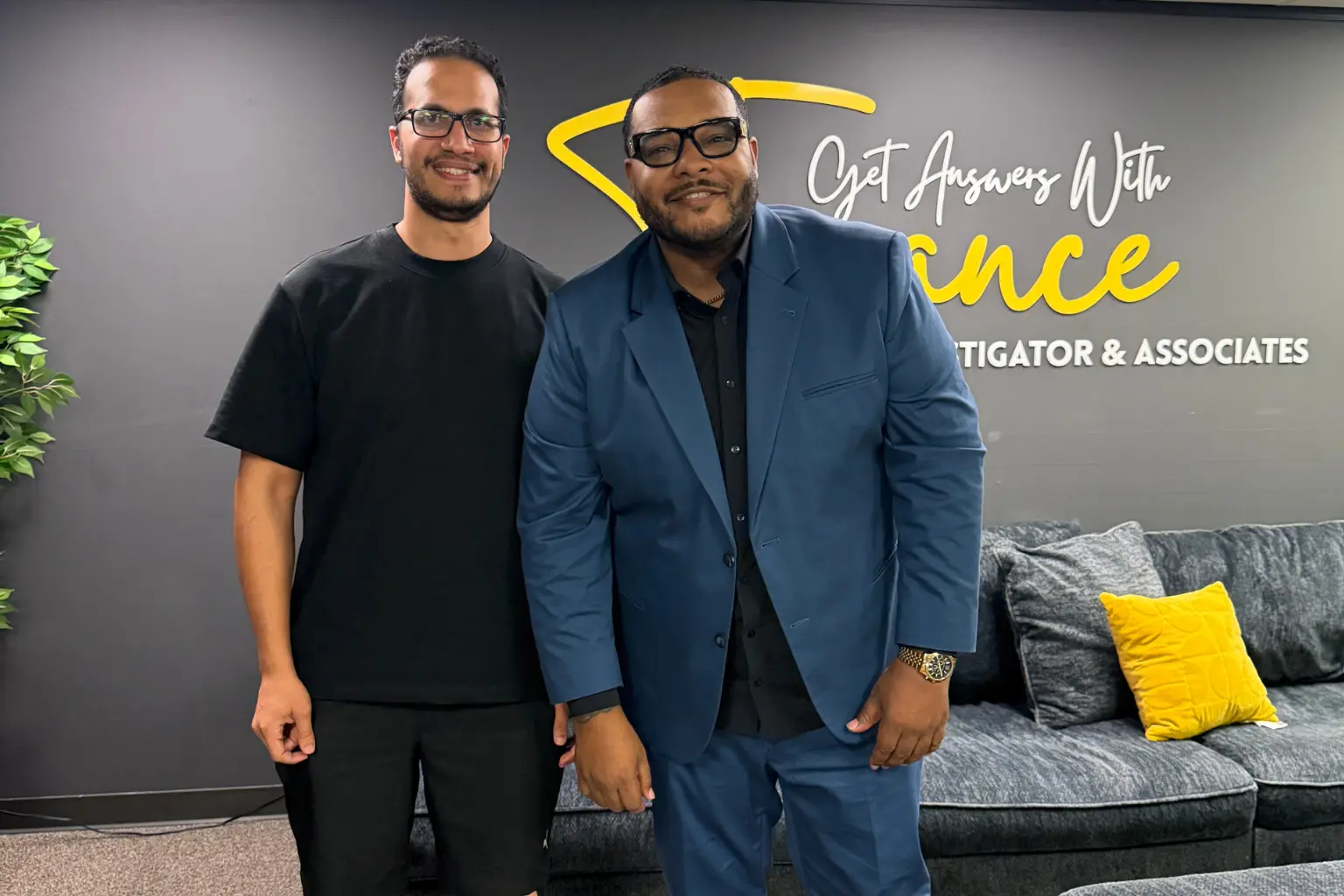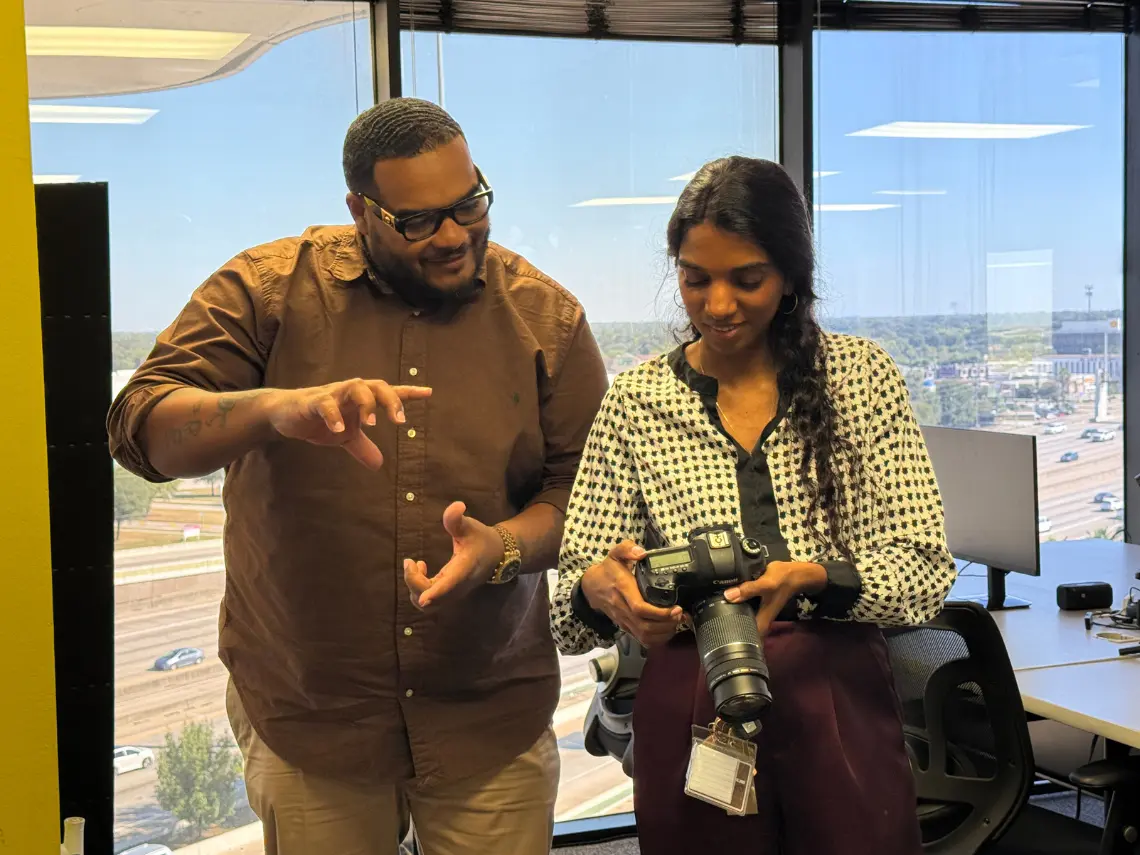It Started Online. Now You’re Scared.
At first, it was just annoying. Nasty comments. Weird messages. Someone who wouldn’t leave you alone online.
You blocked them. They made new accounts. You reported them. Nothing changed. You ignored them. They got worse.
Now you’re not just annoyed—you’re scared.
They’re mentioning places you go. Details about your life they shouldn’t know. Things that make your stomach drop. You’re looking over your shoulder in parking lots. Checking your locks twice. Losing sleep.
You’re wondering: am I overreacting? Is this just internet drama? Or is this actually dangerous?
I’m a Houston private investigator who works cyberstalking cases. And I can tell you—if you’re asking that question, you’re probably not overreacting.
Here are the 10 signs online harassment is becoming dangerous. If you’re seeing these, it’s time to act.
1. They Know Where You Live or Work
This is the big one. This is when online harassment is becoming dangerous.
They mention your address. Describe your house. Reference your workplace. Know the coffee shop you go to or the gym you use.
“Nice house on Maple Street.” “Saw you at Starbucks this morning.” “I know where you work.”
Here’s the thing: they didn’t get this from your Instagram. You didn’t post your address. They either physically followed you, or they’ve spent serious time researching you.
Online harassment just became real-world stalking. That’s dangerous.
2. They Know Things You Just Did
They reference errands you ran yesterday. A restaurant you went to. What you wore. Who you were with.
“Nice blue shirt you wore today.” “Saw you at Target last night.” “Tell your friend Sarah I said hi.”
You didn’t post any of this online. Which means they’re watching you. Following you. Tracking you somehow.
That sick feeling in your stomach? That’s your instincts screaming that online harassment is becoming dangerous. Listen to it.
3. The Messages Are Getting Scarier
The tone changed. What started as mean comments became threats.
“You’re ugly” became “You deserve to die.” “I hate you” became “I’m going to hurt you.” Vague anger became specific descriptions of violence.
Threats against you, your family, your kids, your pets. Detailed descriptions of what they want to do.
According to the Cyber Civil Rights Initiative, escalating threats are the clearest sign online harassment is becoming dangerous.
Pay attention to specifics. “Someone should teach you a lesson” is different from “I’m coming to your house.” Specific threats mean it’s getting dangerous.
4. They’re Going After Your People
They’re not just harassing you anymore. Now they’re targeting your friends, your family, your employer.
They contact your boss with lies. They harass your friends until people start distancing themselves. They post fake reviews of your business. They threaten people you love.
“If your friends knew the truth, they’d leave you.”
This is called isolation. Abusers do this before they escalate violence. When online harassment targets your support system, it’s becoming dangerous.
5. You Block Them and They Just Keep Coming
You’ve blocked thirty accounts. They keep making more.
Different emails. Different social media profiles. Text apps with new numbers. They’re creating entire fake identities just to keep contacting you.
That level of obsession? That’s not normal internet trolling. That’s fixation. And when someone is that fixated on maintaining contact despite you blocking them constantly, online harassment is becoming dangerous.
They won’t stop. That’s what this behavior tells you.
6. They Have Information That Feels Wrong
They know things that aren’t posted anywhere public.
Your phone number. Your family members’ names. Your work schedule. Medical information. Details about your divorce. Photos from your private accounts.
“I know you visit your mom every Tuesday.” “Nice that your daughter goes to Jefferson Elementary.”
They either hacked your accounts, got information from someone you know, or did extensive research. Whatever the method, when online harassment includes private information, it’s becoming dangerous.
7. They Show Up in Person
They appear where you are. Your work. Your home. Your gym. Coffee shop. Places you go.
Maybe they don’t approach you. Maybe they just “happen” to be there. But you see them. And they want you to see them.
This is it. This is when online harassment is definitely becoming dangerous. They’ve crossed from virtual to physical. Even if they don’t speak to you, their presence is a threat.
Call police immediately when this happens. Every single time.
8. They’re Getting Other People Involved
They post your information on forums. Your address. Your phone number. Your workplace. They encourage others to harass you.
Multiple people start targeting you, all coordinated by the original harasser. They’re organizing campaigns against you. Creating groups dedicated to harassing you.
When online harassment becomes group activity, it’s becoming dangerous because now you’re dealing with multiple threats, and you don’t know which one might escalate to violence.
According to the National Network to End Domestic Violence, coordinated harassment often comes before real-world violence.
9. They’re Always Watching
They comment on every post within minutes. They know about accounts you thought were private. They reference deleted posts. They notice the tiniest changes to your profiles.
They know your routine better than you do. They track your friends. They monitor everyone you interact with.
That takes hours every day. Constant surveillance. That level of obsession means online harassment is becoming dangerous because their entire life revolves around watching you.
10. Your Gut Is Screaming
You feel hunted. Not just annoyed—actually scared.
You’re changing your routine because of them. You’re looking over your shoulder. You’re afraid to go places. You’re not sleeping. You feel like prey.
This isn’t just stress. This is fear. Real fear for your safety.
Trust that feeling. Your instincts exist for survival. If your gut is screaming that online harassment is becoming dangerous, it probably is.
Don’t let anyone convince you you’re overreacting.
What to Do Right This Second
If you’re seeing these signs, here’s what you need to do:
Screenshot everything. Every message. Every threat. Include dates, times, usernames. Save it all. Print it. Back it up. You need this for police.
Report to the platforms. Report every account for harassment and threats. Get them removed. Make it harder for them to reach you.
Call police. File a report. Bring your documentation. Get a case number. Ask about protective orders. Many police departments have cybercrime units now.
Get a protective order if you know who they are. This creates legal consequences if they continue.
Increase security. Change locks. Install cameras. Vary your routine. Tell your workplace. Park in lit areas. Don’t go places alone. Change all passwords. Check privacy settings.
Call us. We identify anonymous harassers. We document evidence. We assess how dangerous it actually is. We help keep you safe.
Check out our cyberstalking investigation services for how we handle online harassment becoming dangerous.
Real Talk: You’re Not Overreacting
Look, I know what you’re thinking. “Maybe I’m being dramatic. Maybe it’s just internet trolls. Maybe I should just ignore it.”
But here’s what I see in my work: people who ignored warning signs until it was too late. Women who said “I’m probably overreacting” right up until someone showed up at their door with a weapon.
The woman who hired us after six months of online harassment she thought was “just drama”? She kept blocking and ignoring. Then the harasser posted photos of her house. Described her car. Mentioned her work schedule.
Turned out to be her ex’s new girlfriend. Obsessed. Stalking her for months. Eventually showed up at her workplace with a knife. Got arrested before anyone got hurt, but barely.
That woman told us: “I thought I was overreacting. I should have trusted my gut when online harassment started becoming dangerous.”
Don’t make that mistake.
When It’s Really Dangerous
Some factors make online harassment more likely to become dangerous:
They have a criminal history—especially violence or stalking. They have substance abuse issues. They’re going through a major crisis—job loss, breakup, legal problems. They’re obsessively fixated on you. They have access to weapons. They’re an ex-partner (statistically the most dangerous situation).
If any of these apply, online harassment is more likely to become dangerous violence.
You Don’t Have to Handle This Alone
If you’re scared right now, that’s valid. You’re not being dramatic. You’re not overreacting.
Something feels wrong because something IS wrong. Your instincts are screaming at you for a reason.
Don’t wait until they show up somewhere. Don’t hope they’ll just get bored and stop. Don’t minimize what’s happening.
When online harassment is becoming dangerous, you need help. Professional help. People who do this for a living and know the warning signs.
We Can Help
At Terrance Private Investigator & Associates, we specialize in cyberstalking and online harassment throughout Houston and Texas.
We identify anonymous harassers. We document everything for police and courts. We figure out how serious the threat actually is. We help keep you safe.
If you’re seeing these warning signs and online harassment is becoming dangerous in your life, call us right now.
Call Now: 832-404-3400
Email: getanswers@piterrance.com
Visit: www.piterrance.com
Available 24/7 because we know this doesn’t keep business hours.
Your fear is valid. Your instincts are right. Let us help you stay safe.




